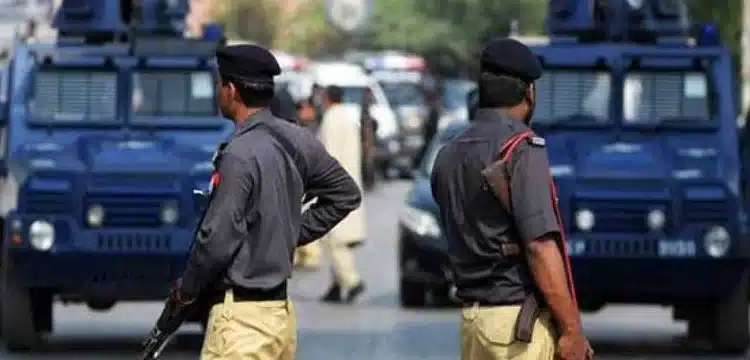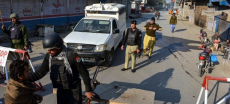[vc_row][vc_column][vc_column_text dp_text_size=”size-4″]
In response to heightened security concerns amid ongoing election campaigns, the province of Punjab has taken a proactive step by imposing Section 144. This significant measure aims to ensure the safety and security of the electoral process, demonstrating the government’s commitment to maintaining law and order during this crucial period.
Section 144 of the Criminal Procedure Code empowers authorities to take preventive actions to address potential threats to public peace and tranquility. By implementing this section, Punjab authorities can regulate and restrict certain activities, helping to mitigate security risks that may arise in the lead-up to and during the electoral process.
Read more: Fawad Declares A Boycott Of General Elections 2024
Election campaigns, marked by heightened political activities and public gatherings, can create an environment where security challenges may emerge. The imposition of Section 144 allows the government to proactively manage and control such situations, preventing any untoward incidents that could disrupt the electoral process or endanger public safety.
The decision to enforce Section 144 underscores the importance the government places on conducting free, fair, and secure elections. Ensuring the protection of candidates, voters, and election-related events is paramount to fostering a democratic environment where citizens can freely express their political preferences without fear of intimidation or violence.
This security measure comes at a time when political rallies, public meetings, and other campaign-related events are in full swing. The large gatherings associated with these activities pose potential risks, and the enforcement of Section 144 serves as a precautionary measure to address any security challenges that may arise during these events.
It is noteworthy that Section 144 is a temporary and targeted intervention, meant to be in force only for the duration deemed necessary to address specific security concerns. The imposition of this section does not curtail the democratic rights of citizens but rather aims to strike a balance between ensuring public safety and allowing the democratic process to unfold in a peaceful manner.
The authorities responsible for enforcing Section 144 will likely monitor and assess the situation continuously. This adaptive approach allows for the lifting of restrictions once the perceived security threats subside, ensuring that normalcy is restored as soon as possible.
While the specific details of the restrictions imposed under Section 144 may vary, it typically includes measures such as prohibiting the assembly of a specified number of people, carrying weapons, and engaging in activities that could disturb public order. These restrictions are carefully designed to address immediate security concerns while minimizing disruptions to the daily lives of citizens.
In conclusion, the imposition of Section 144 in Punjab reflects the government’s commitment to upholding the principles of democracy while prioritizing the safety and security of the electoral process. As political activities intensify during election campaigns, such proactive measures become essential to create an environment where citizens can participate freely and without fear, ultimately contributing to the successful and peaceful conduct of elections in the province.
[/vc_column_text][/vc_column][/vc_row]











